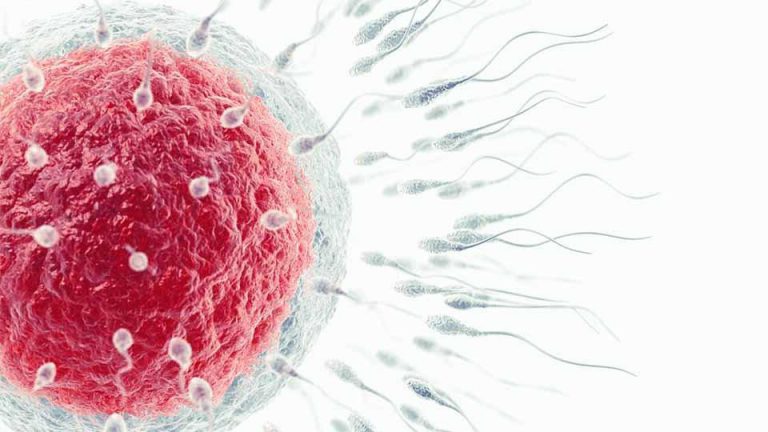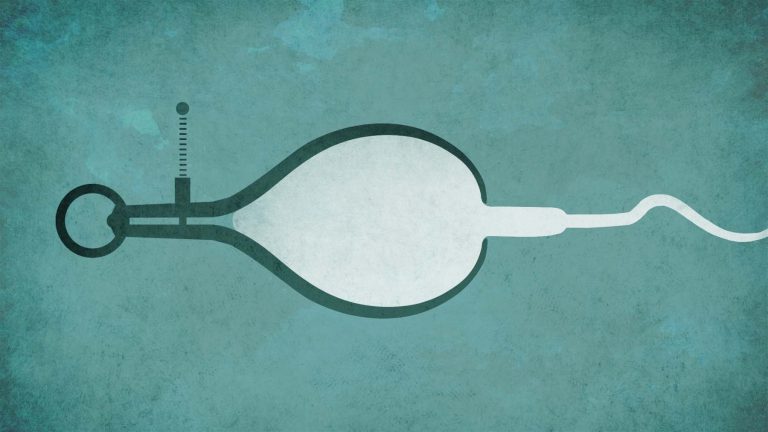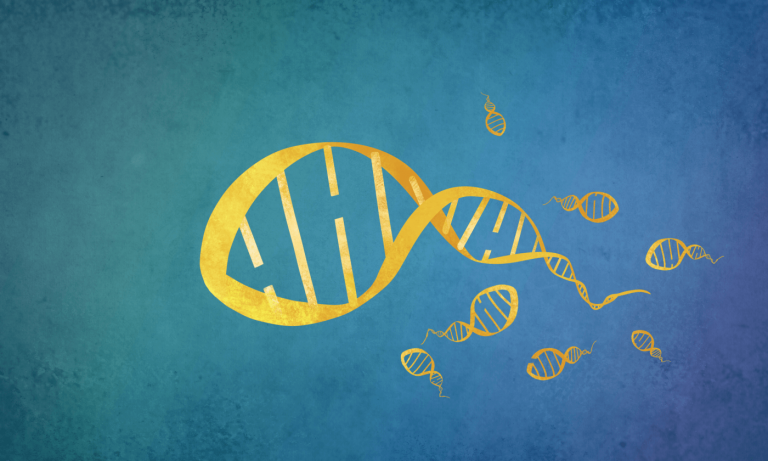Sperm count might be one of the first measures you consider when thinking about male fertility. It can be a vital indicator of a male’s ability to conceive. Here, we’ll go over how sperm count is measured, what affects it, and how to improve it.
What Does “Sperm Count” Mean?
Sperm count is defined as the number of sperm cells within a man’s ejaculate, or semen sample. To determine this number, we measure the number of sperm within one milliliter of semen. This is also known as sperm concentration. Then, sperm concentration is multiplied by the volume of semen within the total ejaculate to determine sperm count.
When more sperm are released during sexual intercourse, it creates a higher probability that one will fertilize an egg. Therefore, sperm count is important to fertility.
Diagnostic Tests for Sperm Count
When testing for male fertility, most healthcare providers will start with a semen analysis. This is a simple test that is performed in a lab after a man gives a semen sample. The sample is examined under a microscope and measures:
- Sperm count
- Sperm concentration
- Semen volume
- Sperm morphology (shape)
- Sperm motility (movement)
One semen analysis is often not enough to get a true measure of fertility, as many factors can impact the results at any given time. Sperm also regenerates every 90 days within the male reproductive system, so there is a chance that results may vary over time. Therefore, doctors may recommend doing multiple tests over the course of a few weeks. At-home tests are available for more privacy and comfort when providing a sample. However, consulting a physician about the results is most beneficial when determining the best course of action to reach pregnancy.
What is a Normal Sperm Count?
According to the World Health Organization, a normal range of sperm count can fall anywhere between 39–928 million. Normal sperm concentration can fall between 15–259 million per mL. Sperm count below the normal range is known as oligospermia. Azoospermia, on the other hand, is the term used to describe a situation in which there is no sperm present in the ejaculate. Azoospermia can be obstructive, meaning there is something blocking the sperm, or non-obstructive, meaning there is an issue with sperm production in the testes.
Having a count that falls within the normal range is a good indication of fertility potential, but other parameters also must be considered. If sperm shape is abnormal or if sperm are not able to move well enough, a high sperm count may not matter. In addition, sperm quality testing that examines environmental influences on sperm DNA is now available as a more comprehensive measure of fertility potential.
What Factors Affect Sperm Count?
Sperm health can be influenced by lifestyle and environmental factors. Drug use, alcohol use, occupational hazards, smoking, stress, depression, diet, exercise, and weight gain can affect sperm count. Exposure to industrial chemicals, toxins, radiation, or excessive heat can also have negative impacts. Additionally, while males produce sperm throughout their lifespan, studies show that sperm count and concentration decreases with age.
Medical conditions can also play an important role in sperm production and lack thereof. For example, hormonal imbalances, sexually transmitted infections, chromosomal defects, and even celiac disease can contribute to low sperm count. Issues with ejaculation can also occur if the semen enters the bladder instead of leaving the penis (retrograde ejaculation). Another very common yet reversible cause of male infertility is swelling in the veins that drain the testicle, known as varicoceles.
Since sperm cells are constantly regenerating within the body, many of these factors can be improved over time. Working with a healthcare provider to understand the joint effects of lifestyle and medical conditions and how to overcome them can help to expedite the process.
Are There Treatment Options for Low Sperm Count?
If lifestyle and environmental adjustments aren’t enough to improve sperm production and count issues, there are treatment options that can help. Surgical interventions can help to remove blockages, reduce swelling in important veins, or address other anatomical abnormalities. Therapeutics such as Clomiphene Citrate or Anastrozole are also used to increase sperm production.
In some cases, it may make sense to consider fertility treatments that assist with conception. Intrauterine insemination (IUI) is a procedure in which a semen sample is washed to remove low quality sperm, then is inserted into the uterus via a catheter. If IUI is unsuccessful, in vitro fertilization (IVF) is often a next step. IVF requires retrieving eggs from the ovaries and collecting sperm from a semen sample. Then, the two are combined in a controlled environment to allow fertilization to occur and an embryo to form. The embryo is then transferred into a woman’s uterus via catheter to hopefully attach and begin developing into a fetus.
Intracytoplasmic sperm injection (ICSI) is a version of IVF in which a single sperm is manually injected into an egg to promote fertilization. ICSI can be especially useful when sperm quality and count are preventing pregnancy because it does the sperm’s job for it.
When Should You Consider Testing Your Sperm?
Testing your sperm count is a relatively simple and low-cost way to start learning about your fertility potential. While there are more thorough options for sperm testing available, a semen analysis done early in the journey can provide a baseline idea of male fertility factors.
Importantly, the symptoms of low sperm count may not present in an obvious way. In fact, the main symptom is the inability to conceive. Other symptoms may include low sex drive, erectile dysfunction, pain or swelling in the testicles, or decreased facial and body hair. Otherwise, it is recommended to see a doctor if you have been unable to conceive after a year of regular, unprotected sex.
Testing early can help to avoid months of unsuccessful trying or unnecessary procedures if there is an underlying issue. More knowledge about your unique biology can make the journey a lot less stressful in general. For more resources, check out our Beginner’s Guide to Male Fertility Testing.







